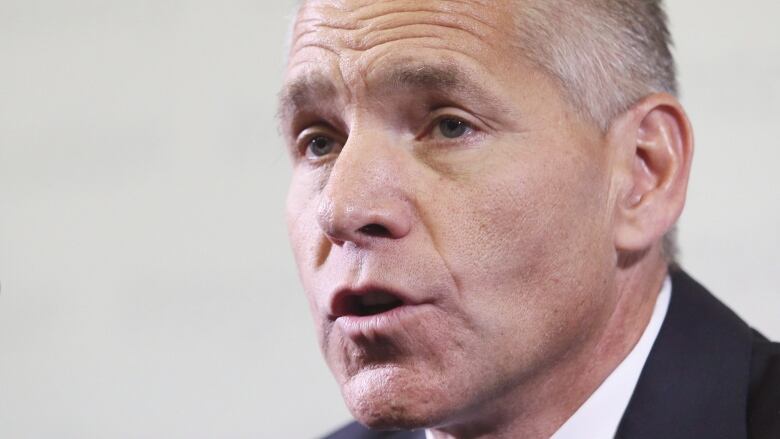Energy East pipeline benefits questioned in secret government memo
Getting Alberta's oil to the East Coast might not result in the higher prices once expected

This story was first published on May 31, 2016, after CBC News obtained an internal federal government document through an Access to Information request.
The market conditionsthat once made TransCanada's proposed Energy East pipeline an attractive conduit for Alberta's oilsands bitumen have now largely vanished, according to an internal finance department memo obtained by CBC News.
A pipeline carrying crude to Canada's East Coast from Alberta was meant to capitalize on the price differential between North American (West Texas Intermediate) and world (Brent) oil prices.
- After a drought, signs of new growth in the oilsands
- Canada's energy superpower status threatened as world shifts off fossil fuel, think-tank warns
- Energy East pipeline: What you need to know
But that price differential has shrunk significantly since 2012, with OPEC unleashing torrents ofoil on the market, Chinese demand weakening and the end of the U.S. ban on oil exports.
"The National Energy Board currently forecasts that WTI will trade at $77.54 and Brent at $81.62 in 2020," reads the memo, marked secret and dated Dec. 10, 2015.
"In that context ... the benefits of the Energy East pipeline would only be $1.48 per barrel compared to oil shipped by existing pipelines to the U.S. However, the benefits of EnergyEast would be up to $6per barrel if compared to shipping oil to the east by rail."
According to the memo,it costs $14 per barrel to ship oil from Alberta to the east coast by rail, compared to $8 if done by pipeline.
Discount on oilsands
Alberta's heavy oil is more expensive to process, so refineries generally ask for a $9 discount per barrel in order to offset the extra refining cost, according to the report. That, combined with Canada's reliance on the U.S. market, has meant a sometimes sharp discount for the country's oil.
"At several points in 2011-12 the price received for oil shipped to the Atlantic wouldhave been $20 per barrel higher than oil shipped to the United States," reads the report.
The report also said "the low price environment has led to oil production forecasts being revised downward; meaning that sufficient capacity (from both rail and pipelines) is projected to exist to transport oil until at least 2025."
Sections of the reporthave been redacted, including the conclusions and all but one paragraph on the effect of carbon pricing.
The report notes setting a price on carbon will affect producers directly with increased costs, and indirectly through anticipated reduction in demand caused bythe related price increases.
$15.7B project
TransCanadahas already invested $700 million in the Energy East project, which would transport 1.1 million barrels of oil a day to Quebec and New Brunswick.The project, once complete, is estimated to cost$15.7 billion.
The company, however,is facing stiff regulatory hurdles and opposition to the pipeline. TransCanada submitted an amended application with the federal regulator in December, with 700 changes meant to minimize the environmental impacts of the pipeline.
The finance department memo, which does not deal with the potential of a rebound in pricing, was sent to deputy minister Paul Rochon from Jean-Francois Perrault, then the assistant deputy minister of the Department of Finance's economic and fiscal policy branch and now Scotiabank's chief economist.
Here is the full document, released under the Access to Information Act:
(PDF 1996KB)
(Text 1996KB)CBC is not responsible for 3rd party content
- MORE BUSINESSNEWS |Canada's energy superpower status threatened as world shifts off fossil fuel, federal think-tank warns
- MORE BUSINESS NEWS |Insolvency rate jumps 43.5% in Alberta












_(720p).jpg)


 OFFICIAL HD MUSIC VIDEO.jpg)
.jpg)



























































































